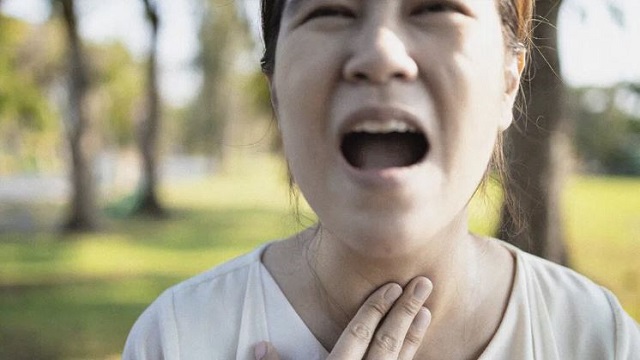Diagnosis through voice; this new AI technology might create wonders
Medicine is a field that is highly dependent on a proper dialogue between the doctor and the patient. Understanding the patient’s problems properly is key to diagnosing the diseases. The main diagnostic tools used to confirm the presence of problems are testing bodily fluids as well as imaging like MRI and X-ray. However, there is a new possible avenue that might be helpful for diagnosing many diseases. Researchers are working to develop an artificial intelligence system that can use voice as a diagnostic tool to identify diseases.
How can voice be used as a diagnostic tool?
Diseases can affect organs such as the heart, lungs, brain, muscles, or vocal folds, which can then alter an individual’s voice. Therefore, voice analysis using artificial intelligence opens new opportunities for healthcare. From using vocal biomarkers for diagnosis, risk prediction, and remote monitoring of various clinical outcomes and symptoms. Keeping this in mind, there might be various possible applications of voice for health related purposes. There is a huge potential of this rapidly evolving environment from a research, patient, and clinical perspective.
The voice, as complex arrays of sound coming from our vocal cords, contains various information and plays a fundamental role for social interaction by allowing us to share insights about our emotions, fears, feelings, and excitation by modulating its tone or pitch. Virtual and vocal assistants on smartphones or in smart home devices such as connected speakers are now mainstream and have opened the way for a considerable use of voice-controlled search. The evolution of voice technology, audio signal analysis, and natural language processing and understanding methods have opened the way to numerous potential applications of voice, such as the identification of vocal biomarkers for diagnosis, classification, or patient remote monitoring, or to enhance clinical practice.
Artificial intelligence for using voice as a diagnostic tool
Researchers are now developing artificial intelligence based tools that could eventually diagnose serious diseases. They are targeting everything from Alzheimer’s to cancer.
The National Institutes of Health-funded project which was announced on Tuesday, is an effort to turn the human voice into something that could be used as a biomarker for disease, like blood or temperature.
According to the website of National Institute of Health, they will invest $130 million over four years, pending the availability of funds, to accelerate the widespread use of artificial intelligence (AI) by the biomedical and behavioral research communities. The NIH Common Fund’s Bridge to Artificial Intelligence (Bridge2AI) program is assembling team members from diverse disciplines and backgrounds to generate tools, resources, and richly detailed data that are responsive to AI approaches. At the same time, the program will ensure its tools and data do not perpetuate inequities or ethical problems that may occur during data collection and analysis.
According to Olivier Elemento, a professor at the Institute for Computational Biomedicine at Weill Cornell Medicine and one of the lead investigators on the project, the best thing about voice data is it is one of the cheapest types of data that can be collected from people. It is also very accessible and can be collected easily from any patient. This would be helpful in creating a wide database.
Accordig to Yaël Bensoussan, an otolaryngologist at USF Health and the other lead investigator of the project said that even though there have been similar efforts in the past, most of them were very small to be effective. The absence of a proper database was also a huge contributing factor. Since it is a relatively new area of study, researchers have not yet figured out the best practices to collect information for this system. The project that is being worked on will set the standards of data collection for this.
The research team will start by building an app that will collect voice data from participants with conditions like vocal fold paralysis, Alzheimer’s disease, Parkinson’s disease, depression, pneumonia, and autism. All the voice collections will be supervised by a clinician. “So for example, somebody that has Parkinson’s disease — their voice can be lower and the way they talk is slower,” Bensoussan says. They would be asked to say sounds, read sentences, and read full texts through the app.
According to some doctors, it is possible to tell that patients were having metastases to the brain by the way they talk!
How will the voice data for diagnostics be protected?
The research team is collaborating with the medical AI company Owkin to build and train the AI models in the project. As per Owkin’s framework, the data collected from the patient stays housed in the center where it was collected while the AI model travels between institutions. The model learns separately on each dataset, and then the results of those trainings come back to a central location, where they’re amalgamated together. This lends an additional layer of privacy protection to the voice data. A team of bio-ethicists is working on the project to study the ethical and legal implications of a voice database and of voice-based diagnostics. They’re going to be thinking through, for example, if voice is protected by the Health Insurance Portability and Accountability Act (or HIPAA) and whether patients own their own vocal data.
Is there any possibility of using voice data for diagnostics?
Voice data is already useful in diagnosis and treatment of voice disorders. It also seems to have immense potential in the field of mental health disorders such as depression, anxiety, PTSD, etc. Collecting voice samples from veterans and analyzing vocal cues like tone, pitch, rhythm, rate, and volume can be useful to look out for signs of invisible injuries like PTSD, traumatic brain injury (TBI), and depression. Using machine learning to mine features in the voice, algorithms pick out vocal patterns in people with these conditions and compare them with voice samples from healthy people is also being worked on.




 Ms Kalinga
Ms Kalinga